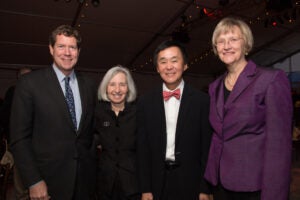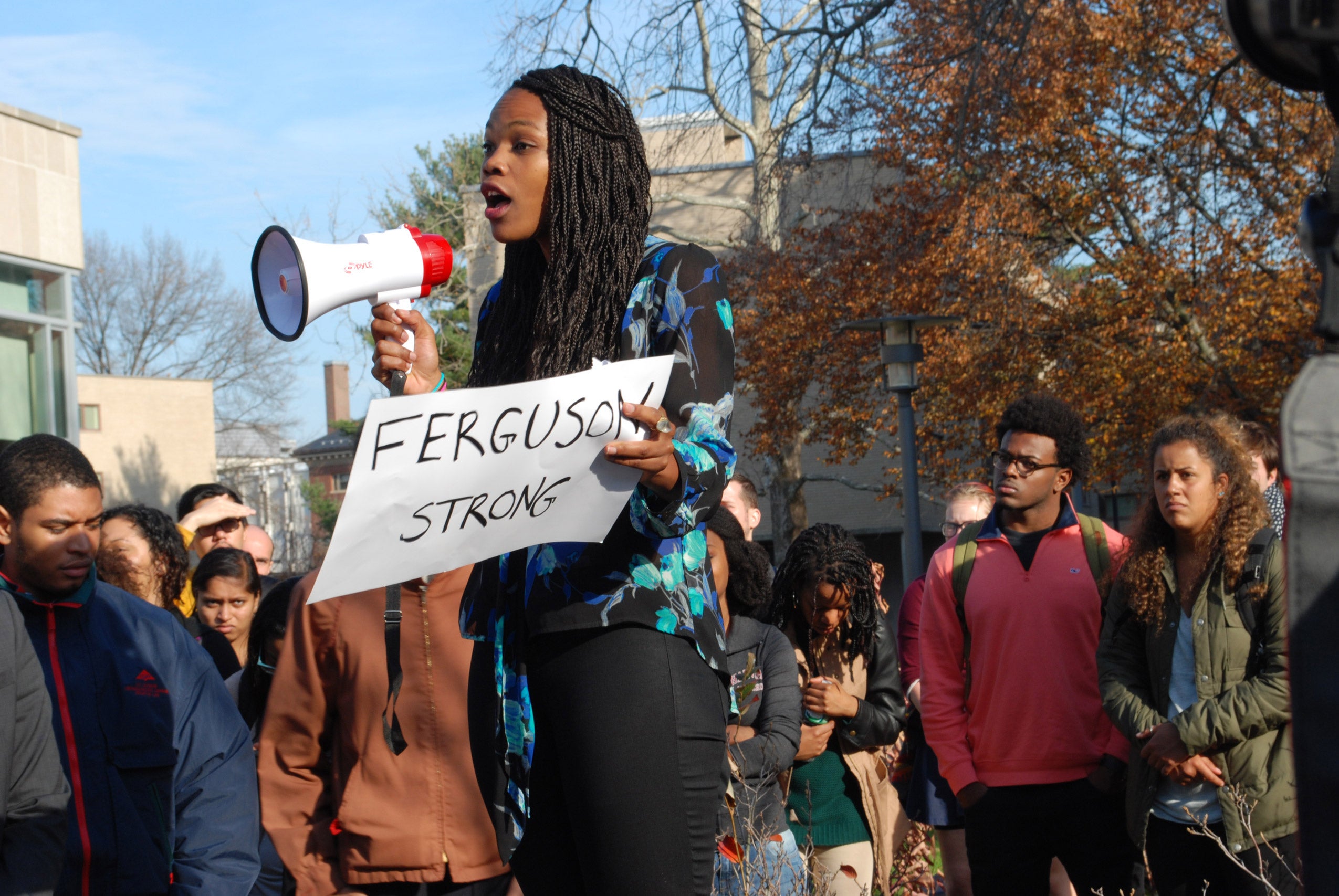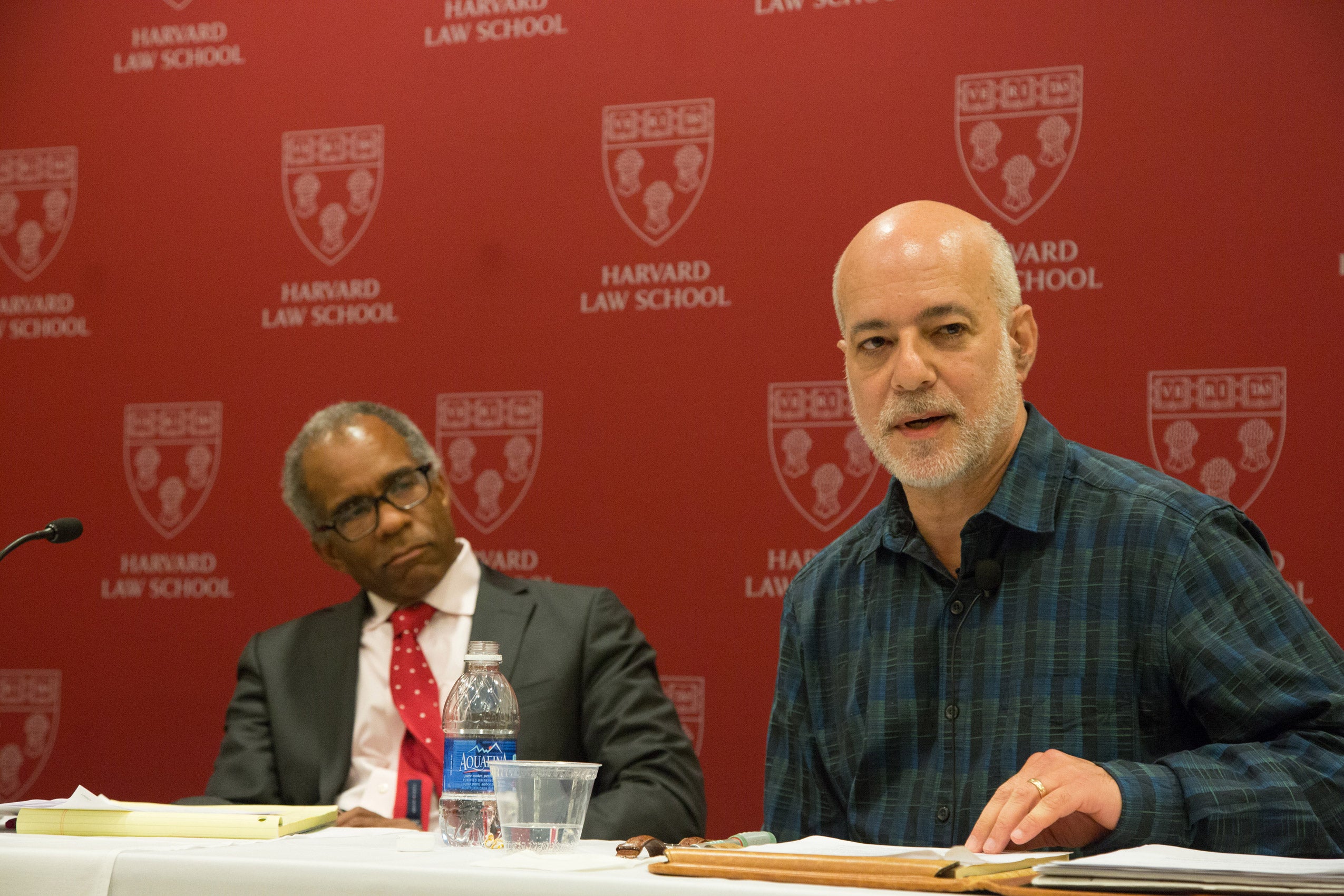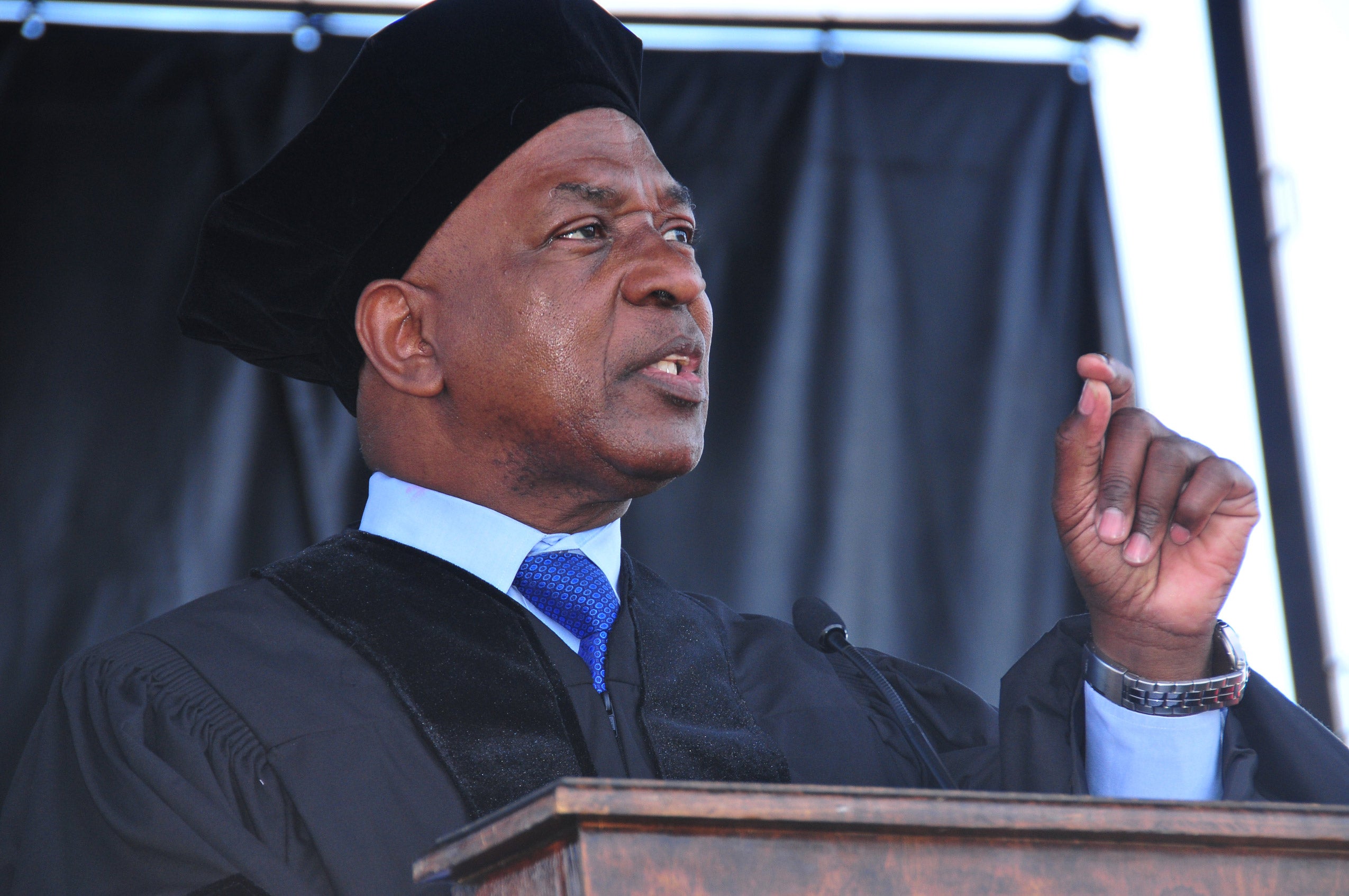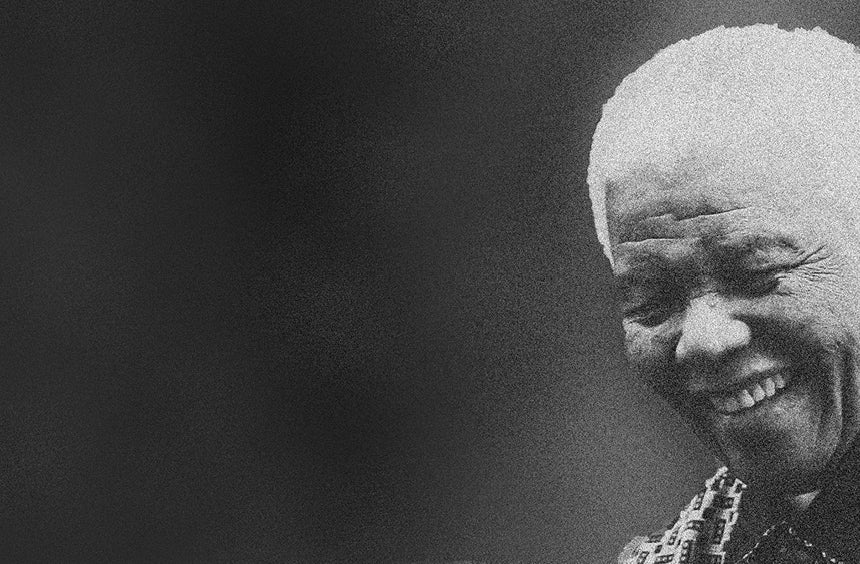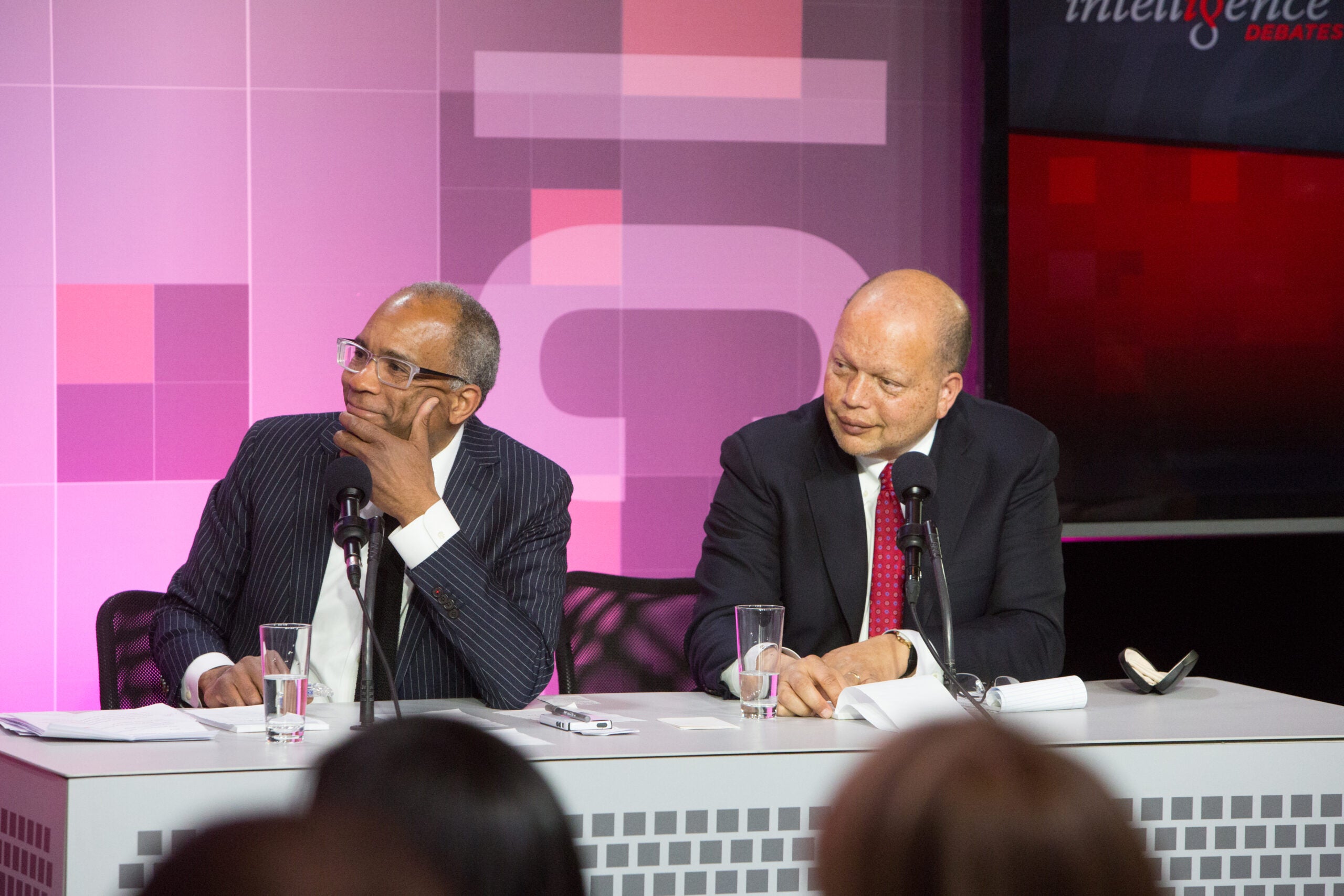People
Randall Kennedy
-
Harvard Law panel will review school emblem, dean says
December 1, 2015
Harvard Law School Dean Martha L. Minow wants a special committee of faculty and students to gather views on whether the school’s seal, which features imagery from the family crest of a slaveholder benefactor, should be changed...On Monday, [Randall] Kennedy said in an interview that he supports Minow’s decision to foster a dialogue centered around questions about whether the Royall imagery should remain on the law school’s seal.“It seems like precisely the right posture for an institution of higher learning to take,” Kennedy said. “I think it’s a perfectly intelligent response.”“Let’s learn. Let’s think. Let's debate.”
-
Black Tape at Harvard Law
November 29, 2015
An op-ed by Randall Kennedy. In a grand corridor of Harvard Law School, framed professors’ photographs hang on a wall. A week ago, someone put slivers of black tape over the faces of most of the African-American professors. I am one of those whose photograph was marked. Last Thursday, on my way to teach contracts, I received an email from a student who alerted me to the defacement. I saw the taped photos, including my own, right before class. Since then I have been asked repeatedly how I feel about having been targeted by what some deem to be a racial hate crime. Questioners often seem to assume that I should feel deeply alarmed and hurt. I don’t.
-
Amid a growing controversy involving questions of accuracy and fairness, the makers of The Hunting Ground, a documentary indictment of campus sexual assaults, are defending the film, which is set to air on CNN on Nov. 22...On Nov. 19, law professors at Harvard, where another of the film’s documented incidents took place, attacked the filmmakers’ accuracy in a widely publicized joint letter that focused on the victim’s inebriation and the absence of violence in the assault. The professors wrote in a letter that was posted on The Harvard Law Record website that the film gave the impression that the accused student "like others accused in the stories featured in the film, is guilty of sexual assault by force and the use of drugs on his alleged victims, and that he, like the others accused, is a repeat sexual predator.” The professors, including prominent faculty members Jeannie C. Suk, Laurence Tribe and Randall Kennedy, noted that there have been "extensive investigations and proceedings" examining the case against the student -- at Harvard Law School, in a criminal case before the grand jury, and in criminal trial before a jury.
-
Professors Dispute Depiction of Harvard Case in Rape Documentary
November 16, 2015
The veracity of one of this year’s most talked about documentaries, “The Hunting Ground,” has been attacked by 19 Harvard Law School professors, who say the film’s portrayal of rape on college campus is distorted, specifically when it comes to their school’s handling of one particular case...“The documentary has created an important conversation about campus sexual assault,” said Diane L. Rosenfeld, a Harvard law lecturer who also appears in the film and did not sign the letter. “We need to be rolling up our sleeves and really figuring out what kind of preventative education programs to develop which create a culture of sexual respect.” But in their letter, the law professors, who include Laurence H. Tribe, Randall L. Kennedy and Jeannie C. Suk, said the film “provides a seriously false picture both of the general sexual assault phenomenon at universities and of our student,” specifically a male Harvard law student whose case is included in “The Hunting Ground.”...“This is a young human being whose life has been mauled by this process for years, and now he has to walk around campus with people saying, ‘Oh, you’re a repeat sexual offender,’ and he’s not,” said Janet Halley, one of the letter’s authors. “It’s not a documentary. It’s propaganda."
-
Harvard Law School launches the Campaign for the Third Century
November 2, 2015
With a nod to its historic past and a look ahead to its future, Harvard Law School has formally launched the Campaign for the Third Century, which seeks to raise $305 million in support of students and faculty, clinical education, new and innovative research, and the continued enhancement of the Law School campus.
-
Randall Kennedy On ‘In Defense Of Respectability’ (video)
October 9, 2015
Harvard Law Professor Randall Kennedy recently wrote a cover story in Harper’s magazine called "In Defense of Respectability." In it, he lauds the peaceful tactics of the civil rights movement, and he has some criticism for the tactics groups like Black Lives Matter have been using lately, criticism that’s not been well received by everyone.
-
Lifting as We Climb
September 18, 2015
An essay by Randall Kennedy. My parents inculcated in me and my two siblings a particular sense of racial kinship: in our dealings with the white world, we were encouraged to think of ourselves as ambassadors of blackness. Our achievements would advance the race, and our failures would hinder it. The fulfillment of our racial obligations required that we speak well, dress suitably, and mind our manners. In our household we felt tremendous pride in the attainments of blacks, and we took personally their disgrace. My father and mother loved to regale us with stories about the accomplishments of Jackie Robinson and Wilma Rudolph, Thurgood Marshall and Charles Drew, Paul Robeson and Mary McLeod Bethune. At the same time, when scandal ensnared a prominent black person, we all felt ashamed, diminished. We were also embarrassed when blacks with poor diction and sloppy comportment appeared on television...Is it wrong for black parents to deliver to their children the sort of talks that my parents gave to me?
-
...Readers have been shocked, dismayed, disillusioned and disoriented. But one thing they perhaps should not be, according to Harvard law professor Randall Kennedy, is surprised.
-
For Discrimination
July 16, 2015
[Randall] Kennedy, a Harvard law professor, is the author of "Nigger: The Strange Career of a Troublesome Word." In this book, subtitled "Race, Affirmative Action, and the Law," Kennedy offers a firm argument explaining why he sees affirmative action as a necessity in this country. Looking back on his own academic history as a student at St. Albans School for Boys, Princeton University and Yale Law School from the late 1960s through the early 1980s, Kennedy explains, "An affirmative action ethos played a role in my admittance and flourishing at each of these selective, expensive, and powerful institutions. This ethos consists of a desire to make amends for past injustices, a commitment to counter present but hidden prejudices, a wish to forestall social disruption, and an intuition that racial integration will enrich institutions from which marginalized groups have largely been absent."
-
Harper Lee’s ‘Go Set a Watchman’
July 15, 2015
A book review by Randall Kennedy. In 1992, a law professor named Monroe Freedman published an article in Legal Times, a magazine for practitioners. He asserted that Atticus Finch, the iconic hero of Harper Lee’s novel “To Kill a Mockingbird,” ought not be lauded as a role model for attorneys...Dismissed by some as the ravings of a curmudgeon, Freedman’s impression of Atticus Finch has now been largely ratified by none other than his creator, Harper Lee herself. The most dramatic feature of her “new” novel, “Go Set a Watchman” — written before “To Kill a Mockingbird” but published 55 years afterward — is the revelation that Atticus, the supposed paragon of probity, courage and wisdom, was a white supremacist.
-
A frequent contributor to Fox News and the Wall Street Journal has injected an oft-missing issue in the #blacklivesmatter movement: facts. The contributor, Jason Riley, faced off with Randall Kennedy, Harvard Law School professor of criminal law and the regulation of race relations, in a civil but intense debate Tuesday evening at the University of Wisconsin-Madison campus. Most of the debate, “Liberal Policies make it harder for black Americans to succeed,” centered around affirmative action and social welfare policies, but the rhetorical combatants did address the politically thorny issue of black crime.
-
Two black intellectuals engaged in a heated exchange at UCLA this week over the high homicide rate among young black men and the shooting deaths of black men by racist or lawless police officers, with one arguing that’s not the main problem facing the black community and the other suggesting it’s a huge crisis.The dispute took place during a debate on campus titled “Liberal Policies Make it Harder for Black Americans to Succeed” between Jason Riley of the Wall Street Journal and Harvard law school Professor Randall Kennedy. ... “That is a huge problem that is going to require a multi-focus,” Kennedy responded. “… I am not saying white racism is the all- purpose explanation for what we are talking about. I am saying is what we are going to have to do is address many different things. One of those things, however, is the problem of police.”
-
And discussions have continued into the new year about the policy and procedures of police, prosecutors and the community at large.
-
Dozens of photographs capturing a pivotal event in the civil rights movement — the 1965 march from Selma, Ala., to the state capital in Montgomery — will be exhibited at the New-York Historical Society early next year. In time to mark the 50th anniversary of the march, “Freedom Journey 1965: Photographs of the Selma to Montgomery March by Stephen Somerstein,” will be on view from January 16 through April 19...In a program related to the exhibition on Feb. 11, Randall Kennedy, a Harvard Law School professor, will discuss the ramifications of the Voting Rights Act of 1965.
-
50 years with the Civil Rights Act of 1964
October 22, 2014
In a panel discussion at Harvard Law School in October commemorating the 50th anniversary of the Civil Rights Act of 1964, Professor Kenneth W. Mack, characterized the legislation as…
-
From Crimson Madness to March Madness?
October 22, 2014
On Friday evening, October 17, Crimson Madness—a kickoff event to celebrate the start of the Harvard men’s basketball team’s fall practices—began in normal enough fashion. Shortly after 6 p.m., head coach Tommy Amaker walked onto the court at Lavietes Pavilion and welcomed the crowd...More subtle evidence of the program’s transformation came from a conversation that occurred before the event in the glass-encased lounge overlooking the court. Just after 5:30 p.m., Amaker was chatting with Randall Kennedy, Klein professor of law, and Jared Sullinger, a power forward for the Celtics. Harvard’s coach had tabbed both men to serve as judges in the slam-dunk contest. Kennedy, who also serves as the team’s faculty adviser but identifies tennis as his main sport, wanted guidance from Sullinger about what qualified as a good dunk. (The key factor? Degree of difficulty.) In what may have been a first, an esteemed Harvard law professor was seeking adjudicatory advice from a 22-year-old professional basketball player.
-
Has President Obama ‘Failed’ Black America? (audio)
July 15, 2014
Since President Barack Obama was first elected in 2008, he’s been both elevated and burdened by one popular title in particular: America’s first black president...Now, in 2014, as President Obama looks towards his last 18 months in the White House, Harvard Law Professor Randall Kennedy asks a provocative question: has Obama failed black America? In the recent issue of Politico Magazine, Kennedy writes: “Obama said that the subject of race was too important to ignore and implicitly promised to confront it if he won the presidency. He has not.”
-
Did Obama Fail Black America
June 30, 2014
An op-ed by Randall Kennedy. On January 20, 2009, when Barack Obama assumed the presidency, the overwhelming majority of African-Americans cheered and prayed for him. His inauguration was a signal moment in black history, reminiscent of the celebrations that accompanied the Emancipation Proclamation, Joe Louis’ victory over Max Schmeling and the March on Washington…For many, the passion has cooled. For some, the thrill is gone.
-
Professors Charles Ogletree, Noah Feldman, and Randall Kennedy each delivered commencement addresses this year, with Ogletree also receiving an honorary doctorate. Professors Alan Dershowitz and Mark Tushnet were also rewarded honorary degrees.
-
In Honor of Nelson Mandela: When, if ever, is violence justifiable in struggles for political or social change? (video)
March 28, 2014
A panel of scholars gathered at Harvard Law School March 14 to examine the legacy of Nelson Mandela with a discussion about the use of violence for political or social change.
-
Three Harvard Law professors and a Harvard Law alum recently participated in debates on Intelligence Squared, a public policy debate series airing on PBS.
